Five things I wish people understood about people living with chronic pain, physical limitations, or disability
“The difference between a good life and a bad life
is how well you walk through the fire.”
Carl Jung
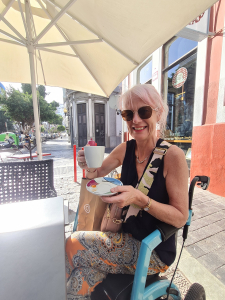
I have recently returned from a couple of trips away from home with my husband Peter.
We had the most amazing time and made so many beautiful memories together. Travel and holidays, however, when living with chronic pain and illness, are not without their challenges.
In truth, what most people would classify as fairly ‘normal’ activities can feel like an obstacle or assault course whose sole function is to test our mental resilience and send our pain levels through the roof!
The bottom line is, living with physical limitations, impairment or disability is never easy. And living in pain sucks at even the best of times.
But it doesn’t mean we don’t want or deserve to enjoy life and embrace life fully!
In a recent interview with Authority Magazine, as part of their Unstoppable Series, I shared five things I wish people understood or knew about people living with physical disabilities or limitations.
With the festive holiday period looming (bringing its additional stresses and challenges!) let me also share them with you here.
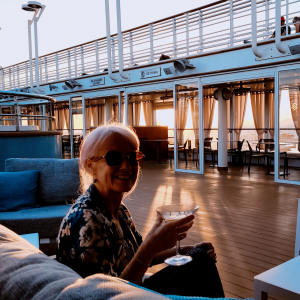 #1 Not all physical limitations or disabilities are visible. Be kind always.
#1 Not all physical limitations or disabilities are visible. Be kind always.
You never know what someone is going through. You have no idea how difficult a night they may have had, how much pain they are in, or how challenging or exhausting just getting out of bed and dressed today may have been for them. Drop the opinions and judgement. Recognize that you do not know what you do not know. Be loving and kind.
Treat others with the same understanding, compassion and respect you would like to be treated with yourself.
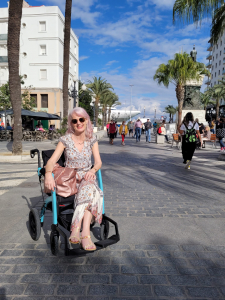 #2 Do not stop inviting us to social gatherings
#2 Do not stop inviting us to social gatherings
Do not stop inviting your loved ones, family, friends, colleagues, or neighbours who live with a chronic health condition, intractable pain, disability or physical limitations out for coffee or lunch and to events and social gatherings. It hurts!
Being disabled does not mean we are defective and that we don’t value relationships and companionship; we have no desire to be the gloom and doom that ‘spoils’ the joy and fun of the night; we still want to participate in life as fully as we possibly can – and want to experience as much as humanly possible that joy and fun too!
It may not be easy for us- in truth, it can be logistically difficult and, at a functional level, painful and exhausting. BUT-that is no excuse to leave us off the social gathering guest list. Our physical limitations may mean we cannot join in with everything (and that’s okay), but do not decide for us by not inviting us at all.
And if we accept and then have to cancel attending at short notice because we do not feel up to it on the day, be non-judgmental, compassionate and understanding – AND keep inviting us to future events.
DO NOT cut us off. When our health doesn’t permit us to join you physically in person, then be open to having a video phone call or Zoom call at a time that works for us best.
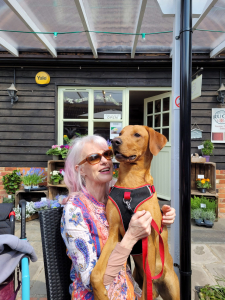 #3 Adults with chronic health conditions and physical disabilities are not children or babies, so do not automatically treat us as such.
#3 Adults with chronic health conditions and physical disabilities are not children or babies, so do not automatically treat us as such.
They are adults with vast amounts of life experience and wisdom (and desires, likes and dislikes, passions, needs, goals and dreams just like you) so please treat us as adults with the respect we deserve. There is no need to talk down to us, use simplistic language, or automatically (without asking us) dive in to cut up our meals for us, speak to shop assistants or waiters on our behalf, or answer questions for us.
By all means, take time to learn about our illness and how it affects us. Ask us questions to better understand our needs and how best you can perhaps help us. But speak to us on equal terms. I wouldn’t speak down to you. There is no need to do it to me.
My husband was once pushing me around a supermarket in my wheelchair when he was asked by a lady on a stand promoting a well-known cake brand and offering samples, “Do you think your wife might like to try a piece of cake?” It was as if I was invisible; she looked straight past me to favour starting a conversation with my husband, who was behind me pushing my wheelchair. My husband replied, ”I don’t know if my wife would like to try a piece of your cake. Perhaps you might like to ask her yourself?”
Please speak to us directly and not through a third party!
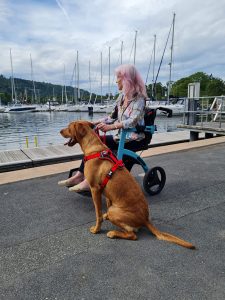 #4 Be patient with us. Park your frustration!
#4 Be patient with us. Park your frustration!
Please do not get frustrated at our slower pace of doing things or our need to use a lift at the far end of the department store instead of what you may perceive as the convenient stairs that perhaps lie ahead.
Do not shout at us, tell us to get a grip, try to rush us, or push us to do things we do not feel up to do on the day, or undermine the severity of our discomfort by telling us our pain can’t possibly be that bad, that your auntie had the same thing and is ‘cured now’ after trying some special diet, that your friend has healed herself by having some form of therapy.
You may mean well – and we get that- but many physical illnesses, disabilities, and health conditions are life-changing, debilitative, progressive and not fixable or curable.
Many of us must accept that fact and live our best lives with pain, illness and disability as our constant companions 24/7. Unfortunately, for many of us, there is no rest or respite from it.
We cannot leave our pain at home for the day whilst we pop out to go shopping or do something else. Where we go, our pain and disability go too. And that means what may seem simple or straightforward to you may be a complete logistical nightmare and physical challenge for someone else!
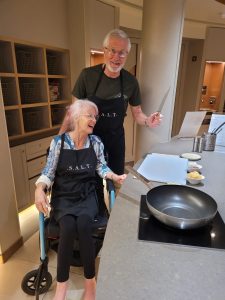 #5 When you see us laughing, smiling, experiencing joy, being happy and content, and exuding a deep inner peace, do not presume that means we are fixed, cured or better. And do not presume that we are no longer in pain or struggling with physical challenges.
#5 When you see us laughing, smiling, experiencing joy, being happy and content, and exuding a deep inner peace, do not presume that means we are fixed, cured or better. And do not presume that we are no longer in pain or struggling with physical challenges.
It means that we are choosing to embrace our life wholly and completely in acceptance of our truth and reality – and to be led by spirit, not by our wound and pain.
It means that we understand that if we can do all we can to keep our soul vibrantly alive and well, we can continue to live a deeply enriched and enlivened life despite our physical difficulties or limitations.
It means we are choosing life and not existence.
Having fun, being happy and having success in life are not exclusively available to the physically fully fit and healthy. And so, do not question or judge our happiness.
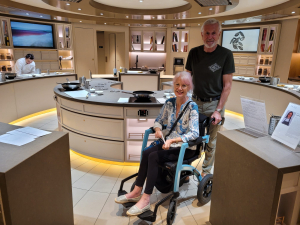 Be happy with us and for us.
Be happy with us and for us.
Laugh with us, experience joy, sit in silence and peace with us – and hold us in your unconditional love and keep us strong on the days when our pain consumes us, and we cry tears and are weak.
Remember that living with pain and disability is not a life choice we have made; we have had to learn to accept and befriend our body and not see it as our enemy.
Wellness is often about keeping your soul and spirit healthy, even when your physical body is injured, deteriorating, ageing or impaired in some way.
Living well happens when you develop an Unhackable Soul—the ability to see the beauty in imperfection and to rise, enriched by truth, and start each day anew.
——–
This Blog offers the opportunity to spark meaningful conversation. I invite you to leave your comments below – or drop me an email.
The bottom line is, Unhackable Souls are always stronger together, and I would love to connect!
 x
x
PS. If you would like to read the full interview in Authority Magazine in which I first shared ‘Five things I wish people understood about people living with chronic pain, physical limitations, or disability’, I invite you to do so by clicking on the highlighted link here.

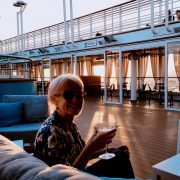
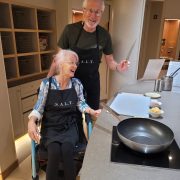
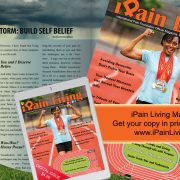

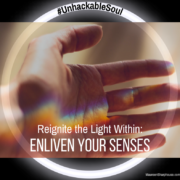
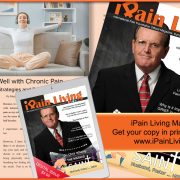

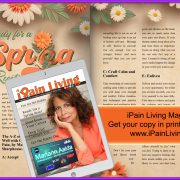


Leave a Reply
Want to join the discussion?Feel free to contribute!